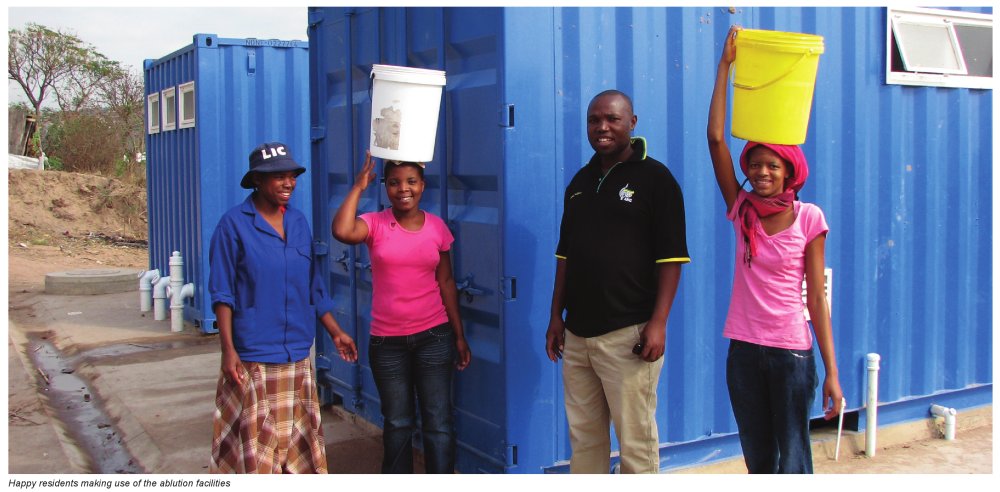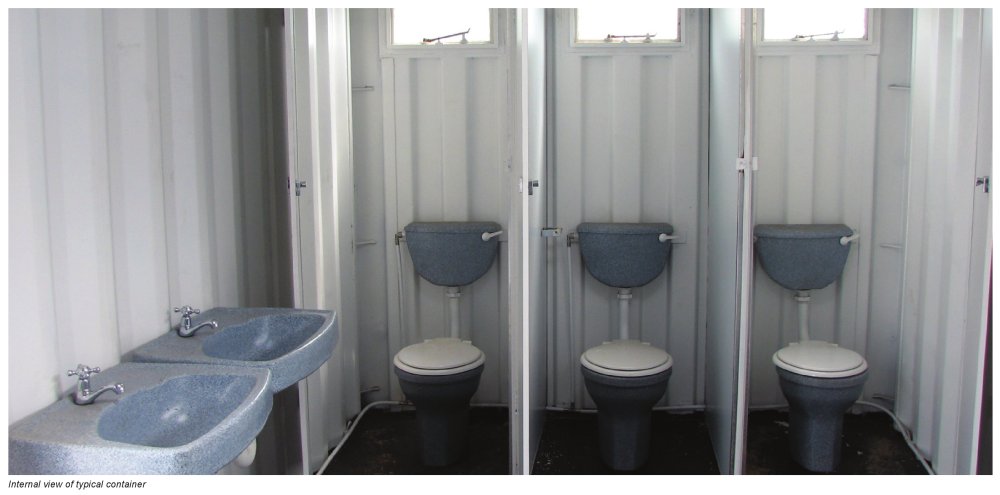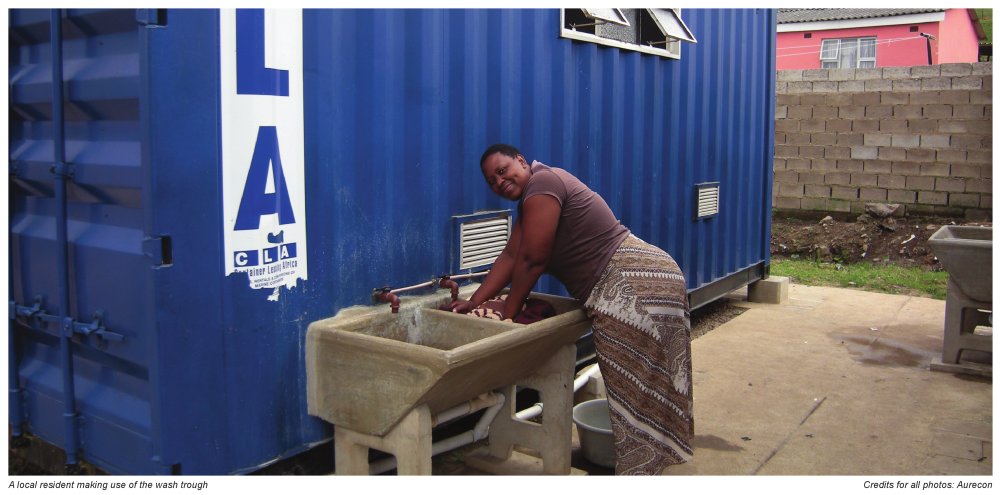You are here
eThekwini Municipality: Interim Services Programme
ETHEKWINI MUNICIPALITY: INTERIM SERVICES PROGRAMME
Overview
Approximately a quarter of the eThekwini Municipality’s total population of roughly 3.5 million reside in informal settlements. Whilst the City can pride itself on a successful and large scale mass housing delivery programme, not all settlements can be provided with full services and low income housing in the short term due to funding and other constraints. Yet informal settlements face a range of basic challenges such as access to adequate sanitation, clean and safe energy and roads. As a result, a pro-active and broad based programme to provide a range of basic interim services to prioritized informal settlements within the Municipality was developed with a view to addressing a range of basic health and safety issues and delivering rapidly to as many settlements as possible instead of providing a high level of service to only a select few.
The interim services provided consist mainly of: a basic road and footpath network with storm-water controls, communal sanitation blocks (or urine diversion units where bulk sewers are unavailable), and electrical connections to shacks. Basic water supply has mostly already been addressed through the provision of standpipes. Livelihoods initiatives, local economic development and the provision of key social facilities are addressed through parallel programmes.
Ablution Facilities
The installation of ablution facilities to informal settlements was initiated by eThekwini Water and Sanitation (EWS) in January 2009, with the aim of providing basic waterborne sanitation to Informal Settlements, thereby addressing EWS’ backlog of sanitation for all as per the United Nations’ Millennium Development Goals. Each communal facility consists of two converted containers (one for males and one for females with showers, toilets, hand-basins and an external wash trough.
The settlements are located throughout eThekwini which covers an area of approximately 2300km2. One facility is provided for approximately every 75 informal dwellings within a 250m radius, ensuring, where possible, that the facilities can be incorporated into the eThekwini Unit’s future formalisation of reticulation within the InformalSettlement and surrounding catchment areas. Phase one is a three year programme from January 2009 to end December 2011.
In support of the principles of eThekwini Municipality’s Targeted Procurement Policy and the principles of Broad Based Economic Empowerment, a similar selection process to that of the Main Contractors was followed in respect of the selection of Emerging Contractors, via the advertisement of Expressions of Interest, to work in conjunction with the large Contractors thus completing the team, with Aurecon as the Programme Manager. As this project was aligned with the Expanded Public Works Programme, all necessary reporting was administered on a monthly basis and the employment opportunities are tabulated below:
| Men | Women | Youth Men | Youth Women | Total | |
| Accumulated to Project end | 912 | 306 | 1,480 | 506 | 3,204 |
As at October 2010, in excess of 180 container sites have been constructed and approximately 100 more are expected to be complete by December 2011. Phase two of the Sanitation Project was advertised for public tender in October 2010 and the newly selected teams are expected to begin in January 2012 to address the outstanding informal settlements. The proposed budget to complete this work is approximately R900 million, the funding coming from EWS and Urban Settlements Development Grant (USDG). This would fund approximately 3,000 more ablution sites.
Caretakers are identified from the local community and routine maintenance is carried out by EWS. In addition to Informal Settlements, the project has now expanded to include the provision of sanitation facilities to Transit Facilities in eThekwini with an approximate 100 sites selected for completion in 16 Transit Facilities by the end of December 2011.
EWS is also acting as an Implementing Agent for the Department of Education (DOE), providing water and sanitation facilities to schools in the Umlazi and Pinetown District areas including capital and maintenance projects. As at October 2010, this project addressed the needs of 35 schools, with further schools to be addressed as budget is provided by the DOE.
Continued on Panel 2.
ETHEKWINI MUNICIPALITY, AURECON AND PROJECT PREPARATION TRUST
Powered by AA Media and The Architects Collective of South Africa


